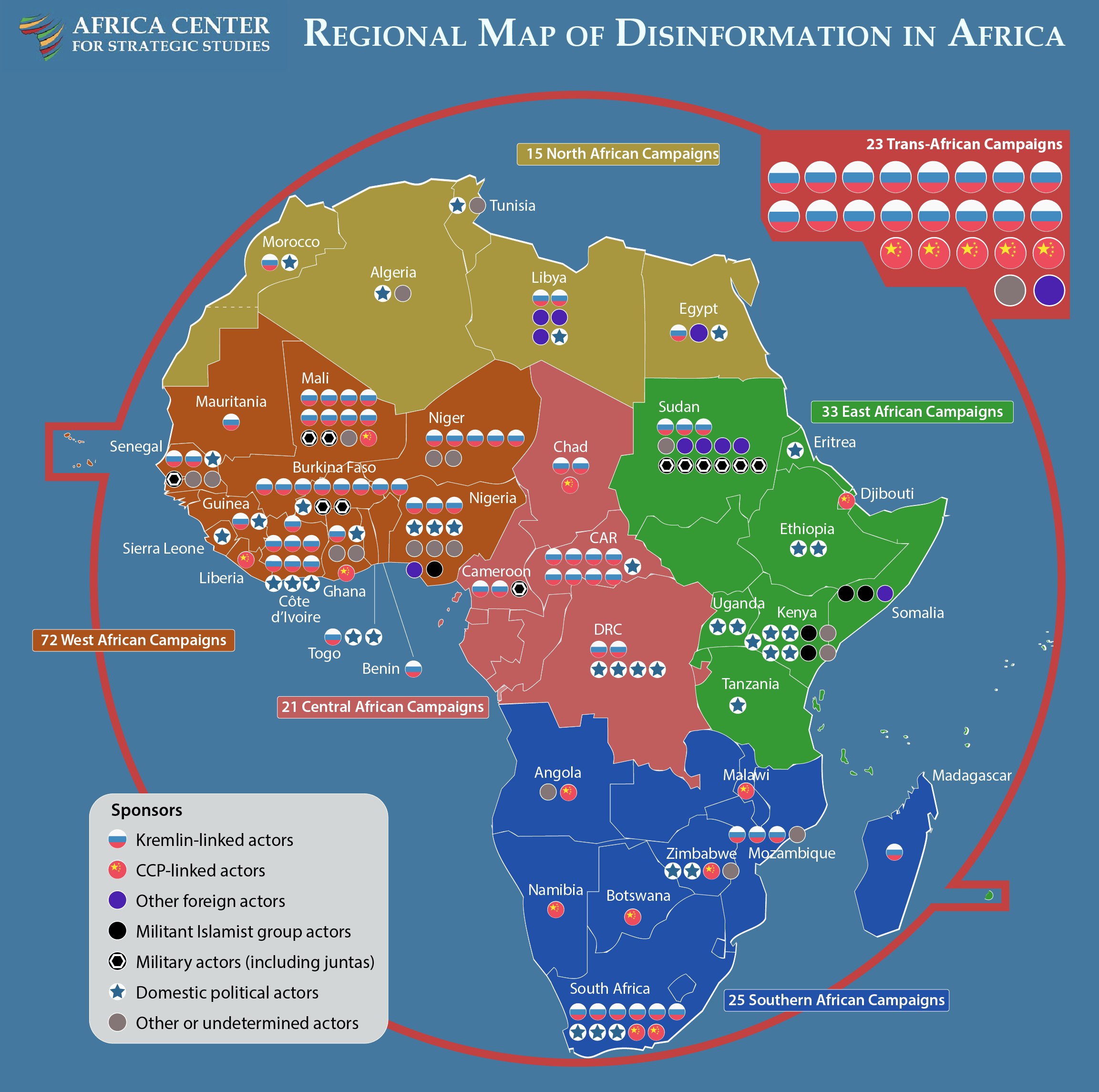- cross-posted to:
- world
- cross-posted to:
- world
Highlights
- Disinformation campaigns have targeted every region of the continent. At least 39 African countries have been the target of a specific disinformation campaign.
- Disinformation tends to be concentrated. Half of the countries subjected to disinformation (20 of the 39) have been targeted three or more times, up from just seven countries meeting that threshold in 2022.
- African countries experiencing conflict are subject to much greater levels of disinformation—facing a median of 5 campaigns– highlighting the connection between instability and disinformation.
- Countries confronting disinformation typically face multiple disinformation actors. At times, these actors amplify one another’s misleading narratives, while at others, they clash or stay in separate lanes.
- Nearly 60 percent of disinformation campaigns on the continent are foreign state-sponsored—with Russia, China, the United Arab Emirates (UAE), Saudi Arabia, and Qatar as the primary sponsors.
Russia continues to be the primary purveyor of disinformation in Africa
- Russia continues to be the primary purveyor of disinformation in Africa, sponsoring 80 documented campaigns, targeting more than 22 countries. This represents nearly 40 percent of all disinformation campaigns in Africa. These 80 campaigns have reached many millions of users through tens of thousands of coordinated fake pages and posts. Aggressively leveraging disinformation is a mainstay of Russia’s use of irregular channels to gain influence in Africa.
- Russia has promulgated disinformation to undermine democracy in at least 19 African countries, contributing to the continent’s backsliding on this front.
African elections provide prime opportunities for disinformation.
- African elections provide prime opportunities for disinformation. Some employ mercenary disinfo-ops teams. One private Israeli group, dubbed “Team Jorge,” has reportedly implemented disinformation campaigns to disrupt over 20 African elections since 2015.
- Domestic actors have also increasingly integrated disinformation into their political playbooks, notably during Kenya’s 2022 and Nigeria’s 2023 election.
- African countries that uphold presidential term limits (i.e., those with stronger checks and balances) are less exposed to foreign sponsored disinformation, with an average of 1.5 campaigns compared to an average of over 3 campaigns for countries without term limits. This underscores the common aim of foreign disinformation to prop up authoritarian actors.
- Disinformation is surging in African information spaces at a time when press freedom—a critical protective barrier against disinformation—is in decline. Legislation targeting digital disinformation has been used as a pretext for harassing and detaining journalists.
You must log in or register to comment.


